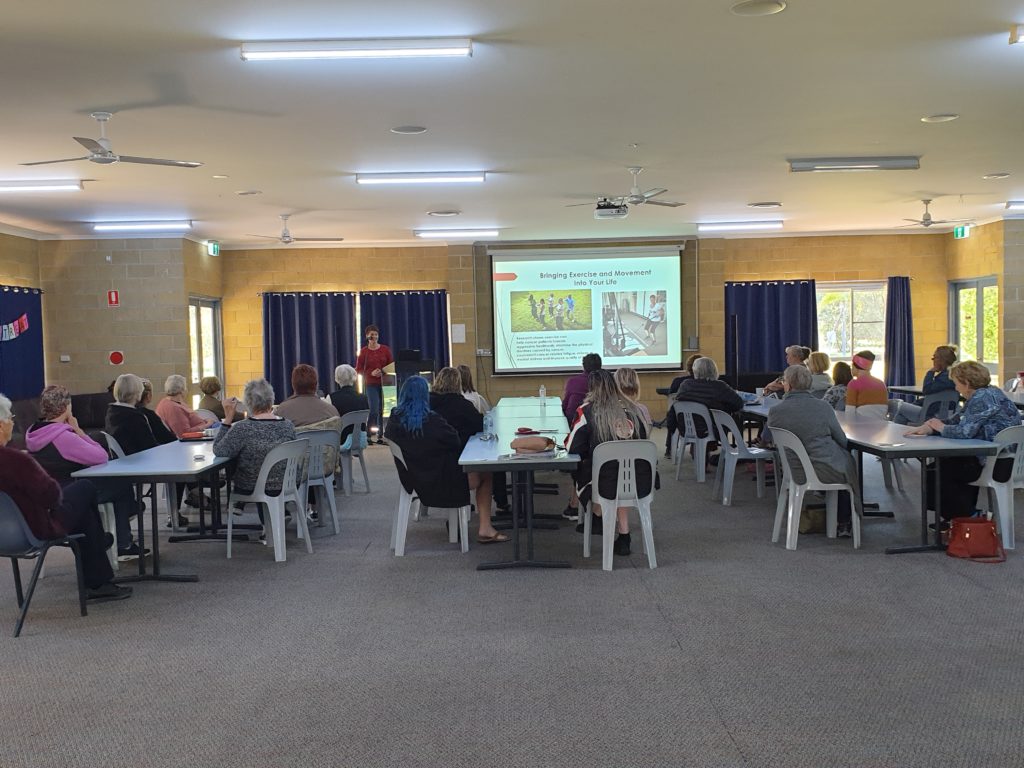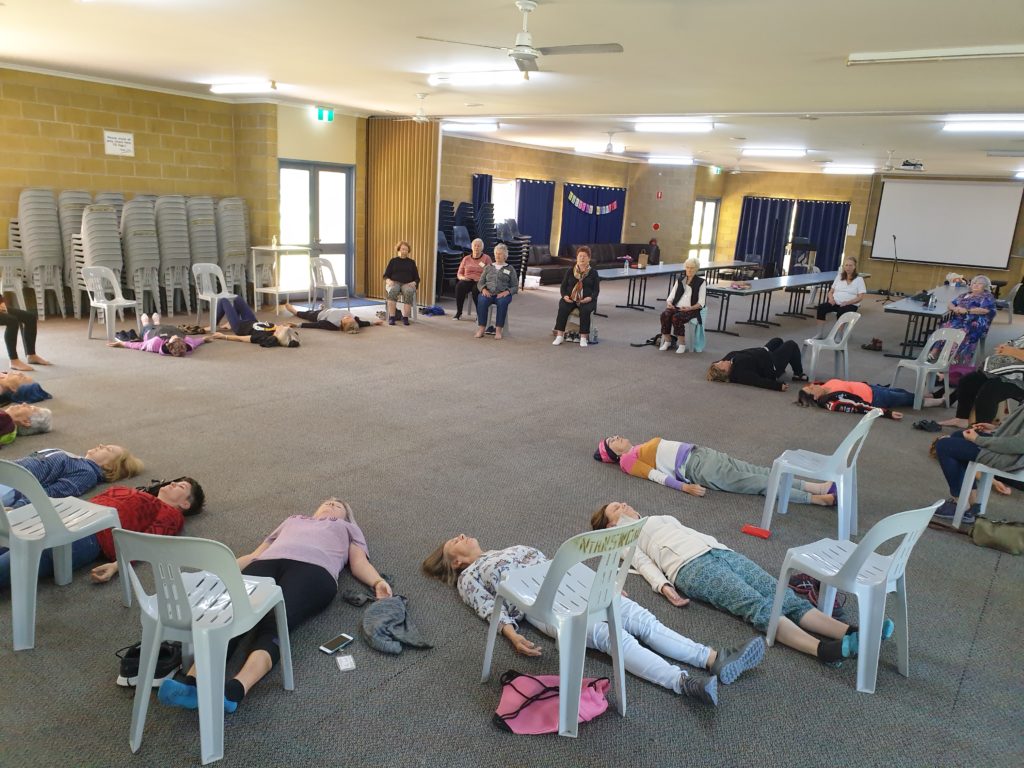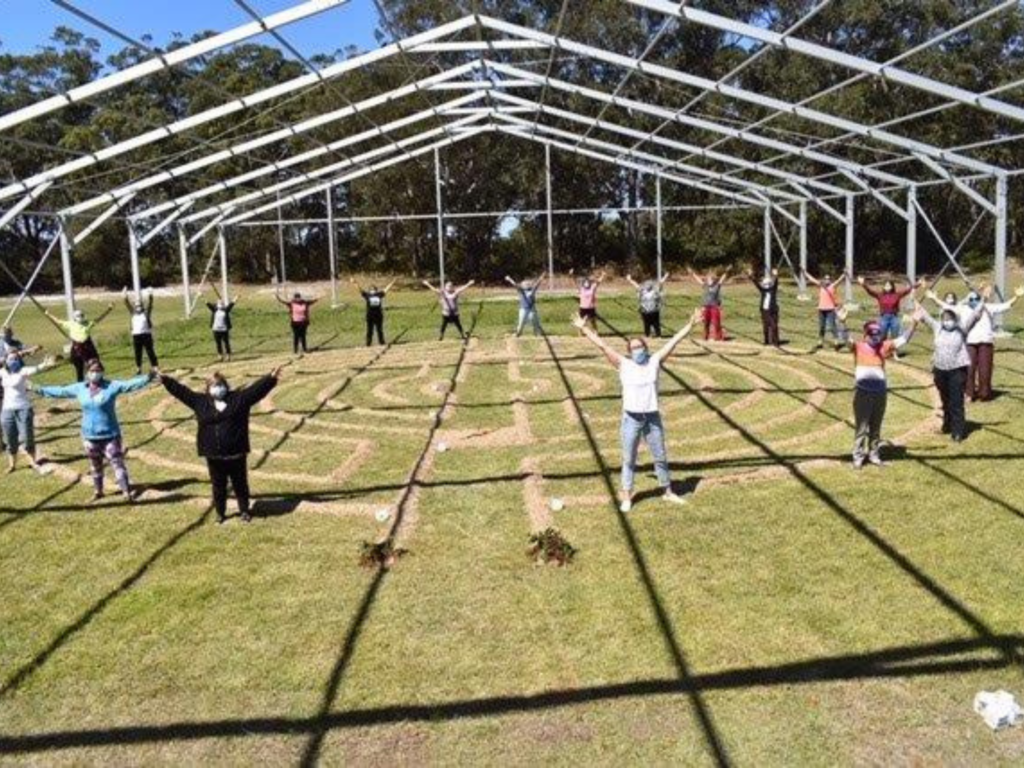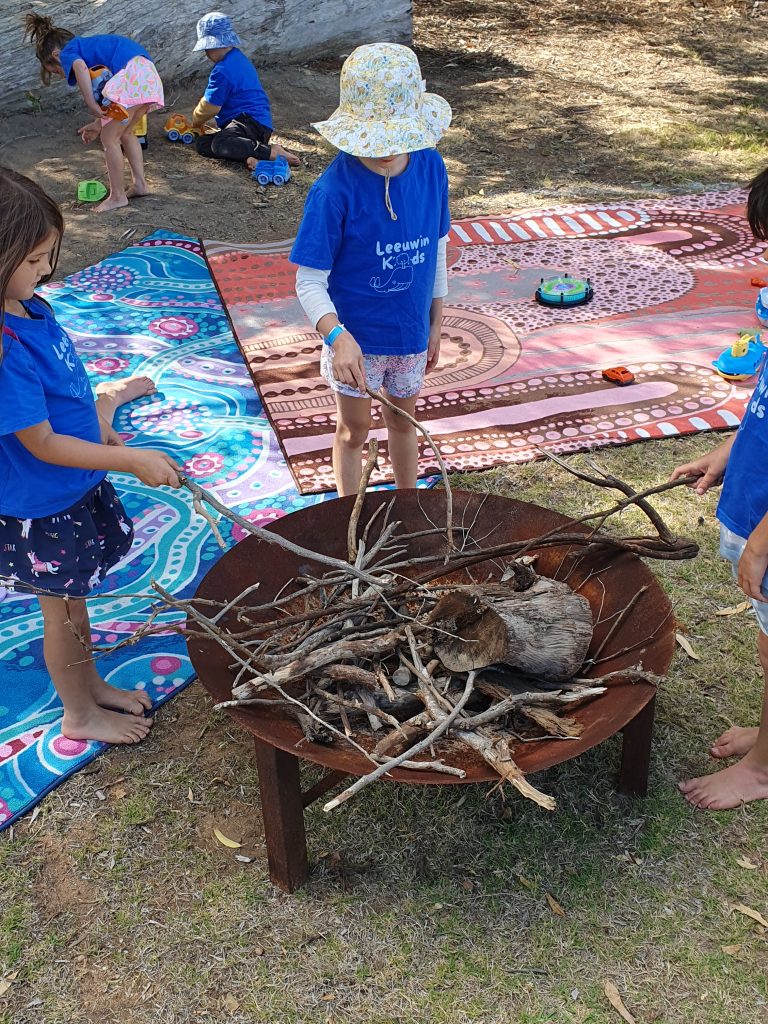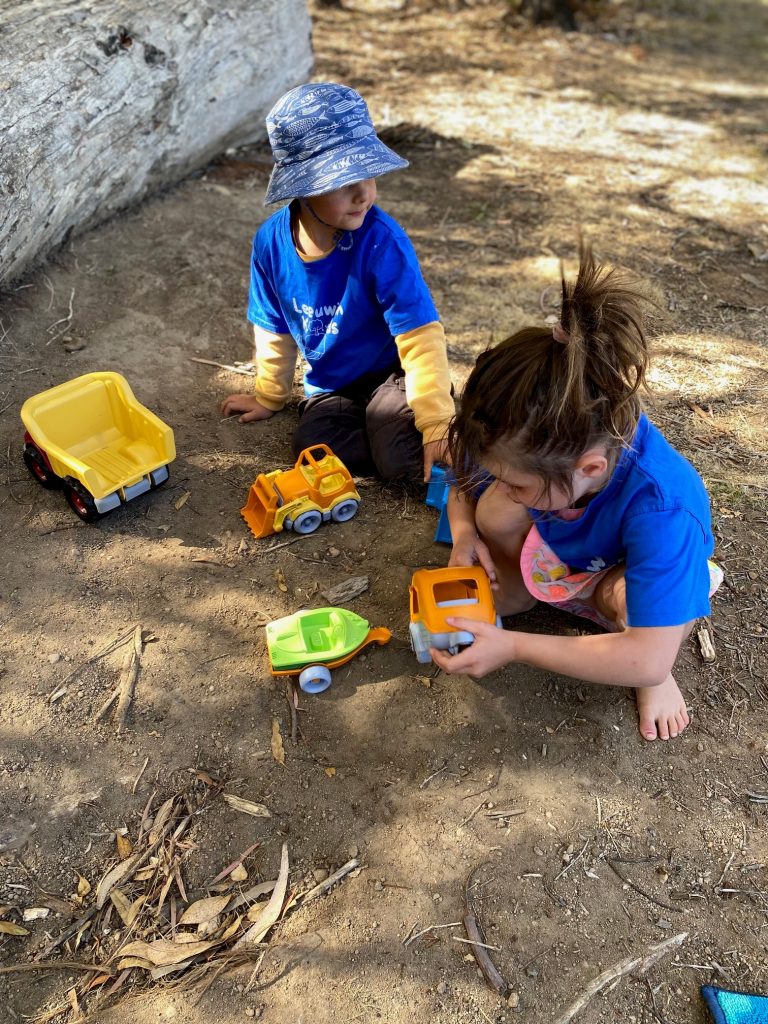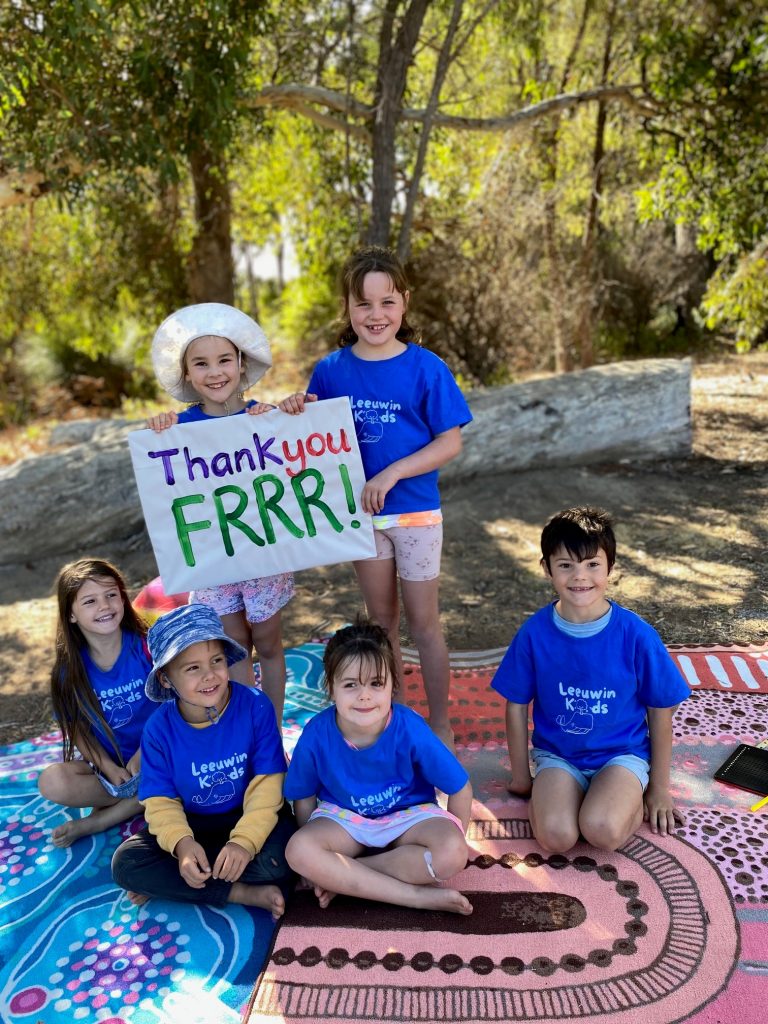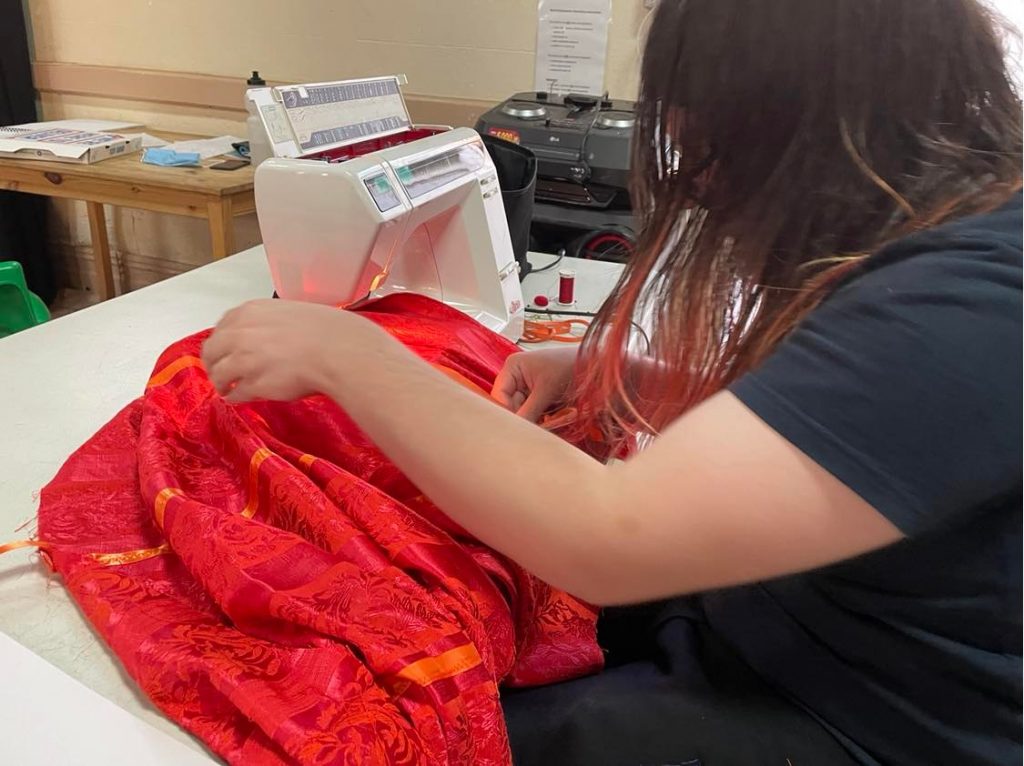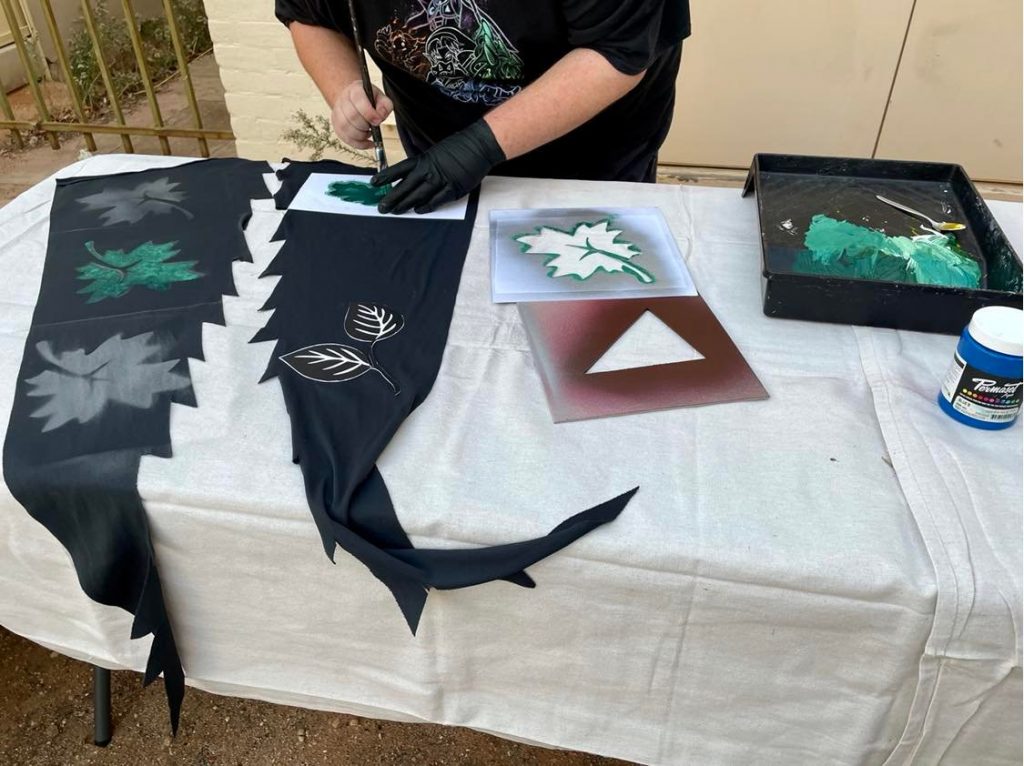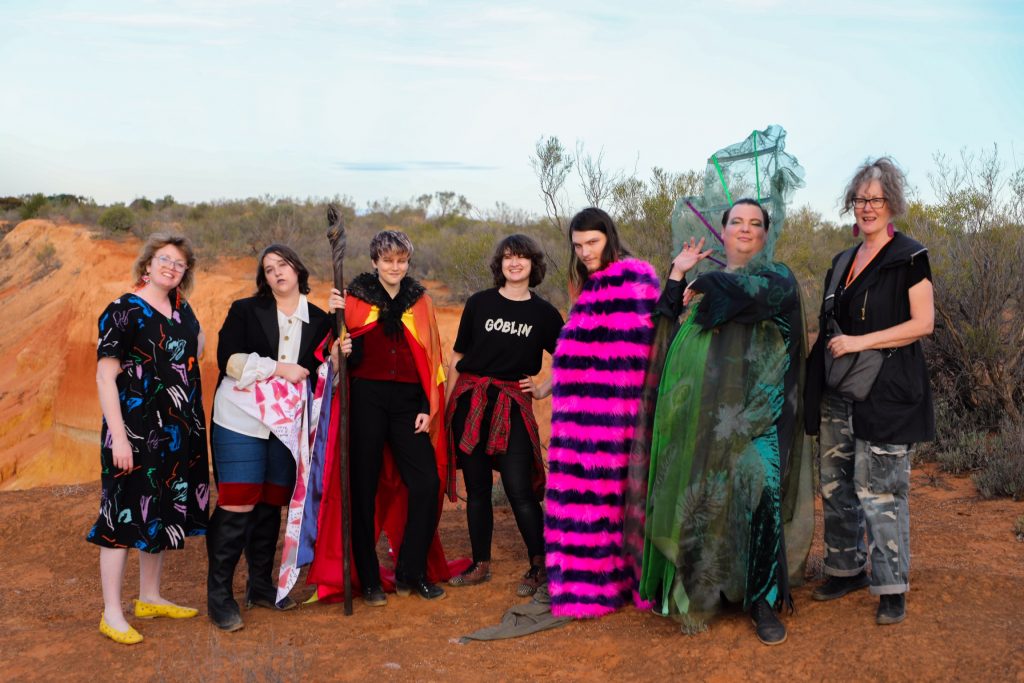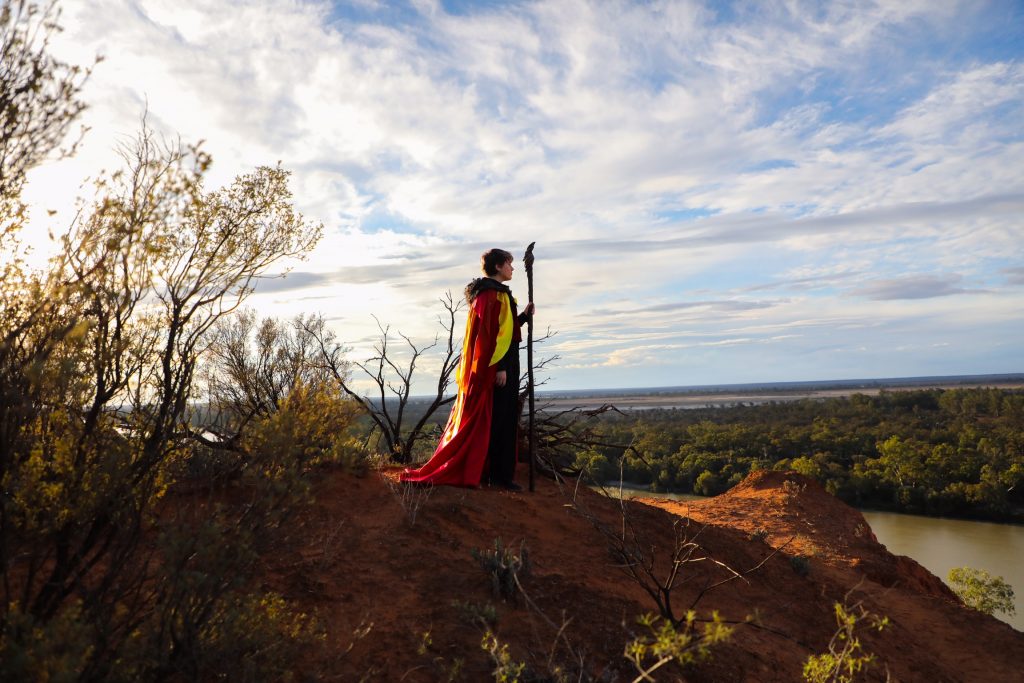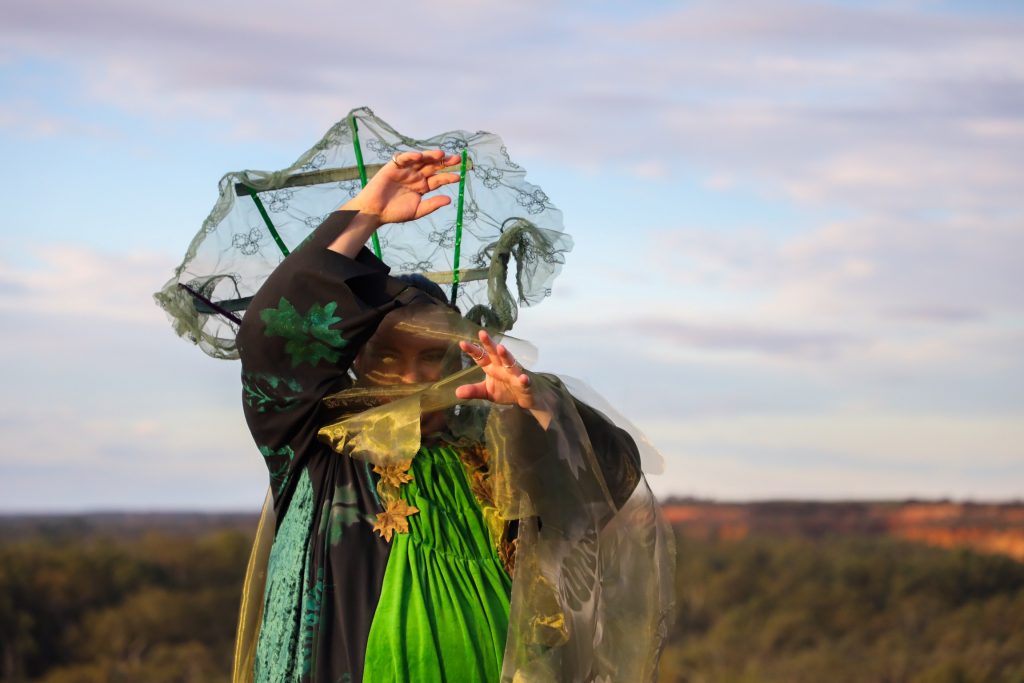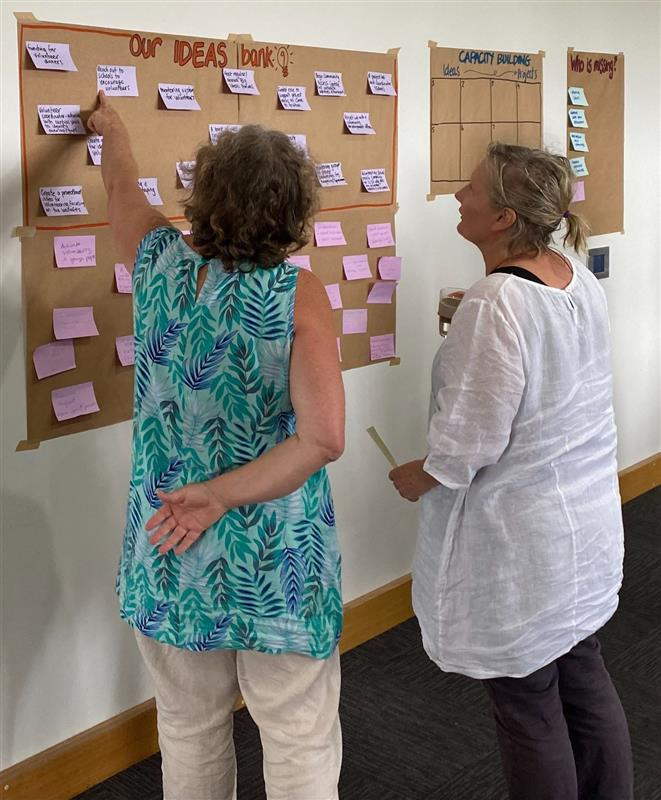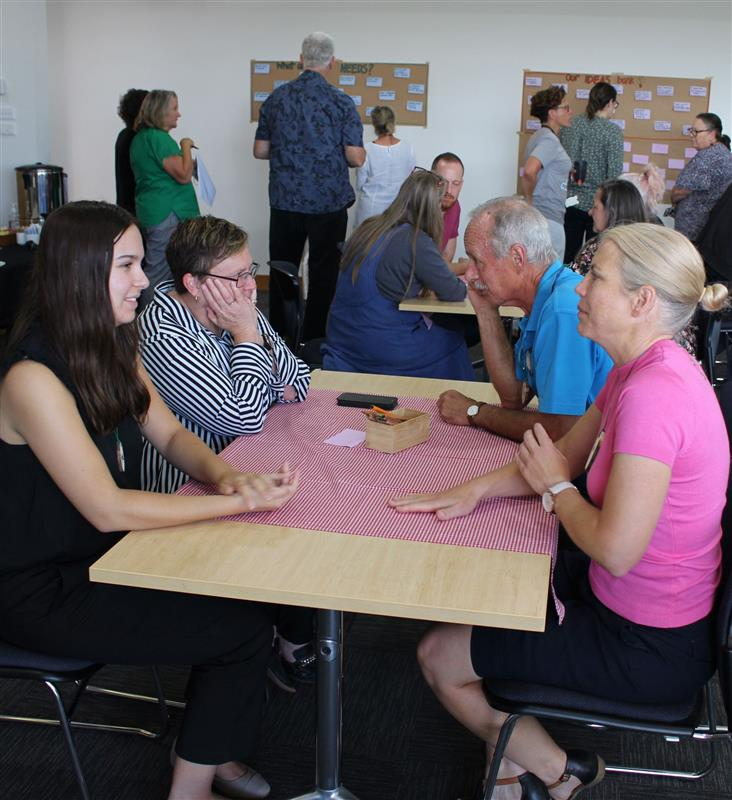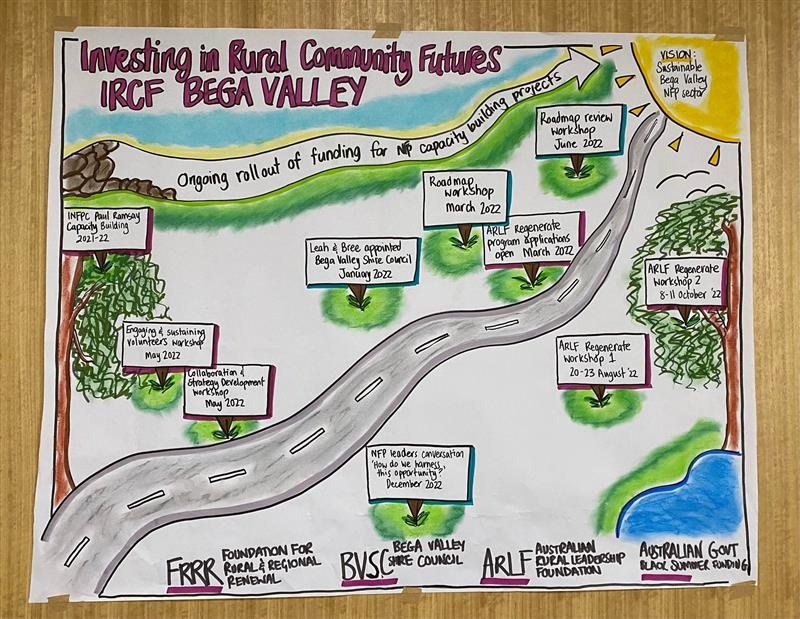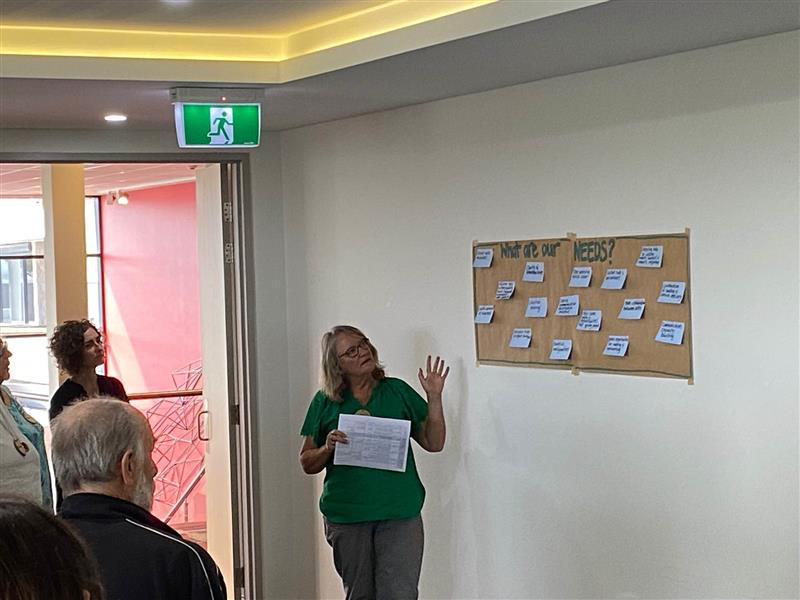Foundation for Rural & Regional Renewal (FRRR)
In rural communities where enduring drought and devastating bushfires have left an emotional toll, a cancer diagnosis can lead to a particularly isolating and challenging experience. With support from our Strengthening Rural Communities program, Macksville Community Health was able to make a real difference in the wellbeing of women living along the Nambucca river and living with or in remission of cancer.
As a subsidiary of the Mid North Coast Local Health District (MNCLHD), Mackville Community Health provides healthcare for communities in the Nambucca Valley, NSW. Many of their successful support systems and programs are designed to address the impacts of the recent drought and bushfires.
Thanks to the support of the Fire Fight Australia Fund, they received a grant of $10,000. This allowed them to host a three-day retreat at the Yarrahapinni Ecology Centre for women living with or surviving cancer, who had been affected by the 2019/20 bushfires in the region.
The Sisters Retreat s Guided by Local Gumbaynggirr Women in a ‘Welcome to Country and Smoking Ceremony’, the retreat used engaging activities to educate the participants on a range of different coping mechanisms that allowed them to feel empowered and regain some control over their own lives.
The strategic nature of this program helps the organisation tackle important issues in rural communities such as declining mental health in the aftermath of the bushfires. Of the women reporting poor mental health, many were single or living remotely, with little access to their support network. By attending the Sisters Retreat, these women were able to connect with others in similar situations.
McGrath Breast Cancer Nurse, Carolyn Cross said that without grant, the project would not have gone ahead.
The Board and staff of FRRR mourn the sudden passing of the Honourable Simon Crean.
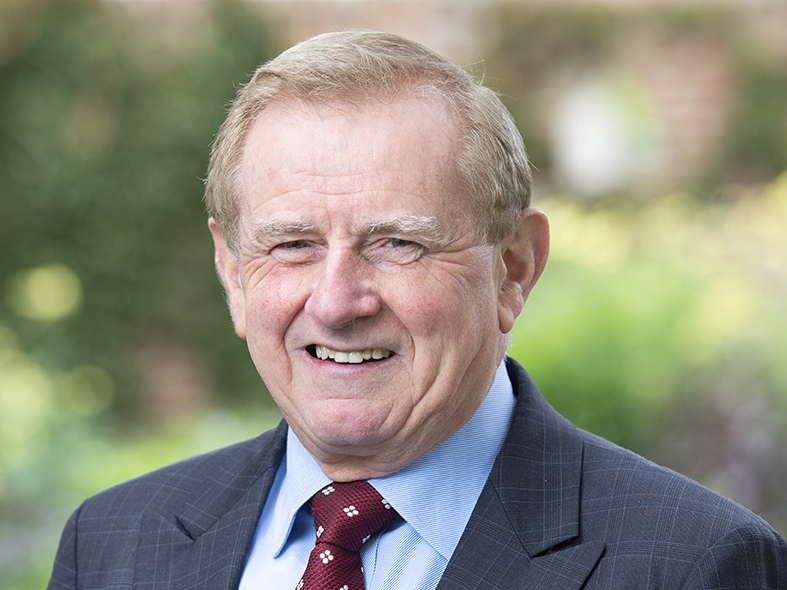
Alongside his more high-profile commitments and achievements, Simon was also a Director of FRRR. He was appointed to the Board on 1 July 2019 and was a vocal advocate for remote, rural and regional communities, always striving to ensure that people in the bush were supported.
He understood the policy and the politics but, more importantly, had genuine empathy for the challenges experienced by those communities. He sought out collaboration and always focused on the right outcome.
Around the Board table, he was an energetic colleague with a great capacity for debate and learning. His questions to management reflected his depth of knowledge and thirst for understanding more to ensure that we were achieving as much as possible with every grant or proposed investment. Ultimately though, it was us who learnt from him.
His intellect, curiosity, passion and friendship will be sorely missed by all at FRRR. We extend our deepest condolences to his wife Carole, his daughters, and his extended family and friends.
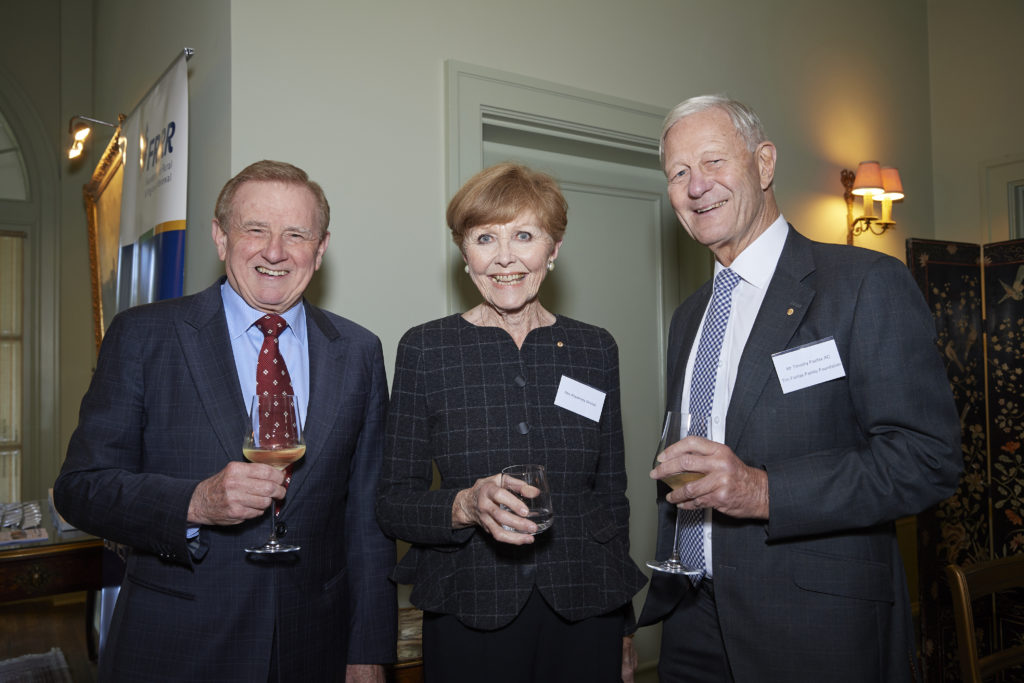
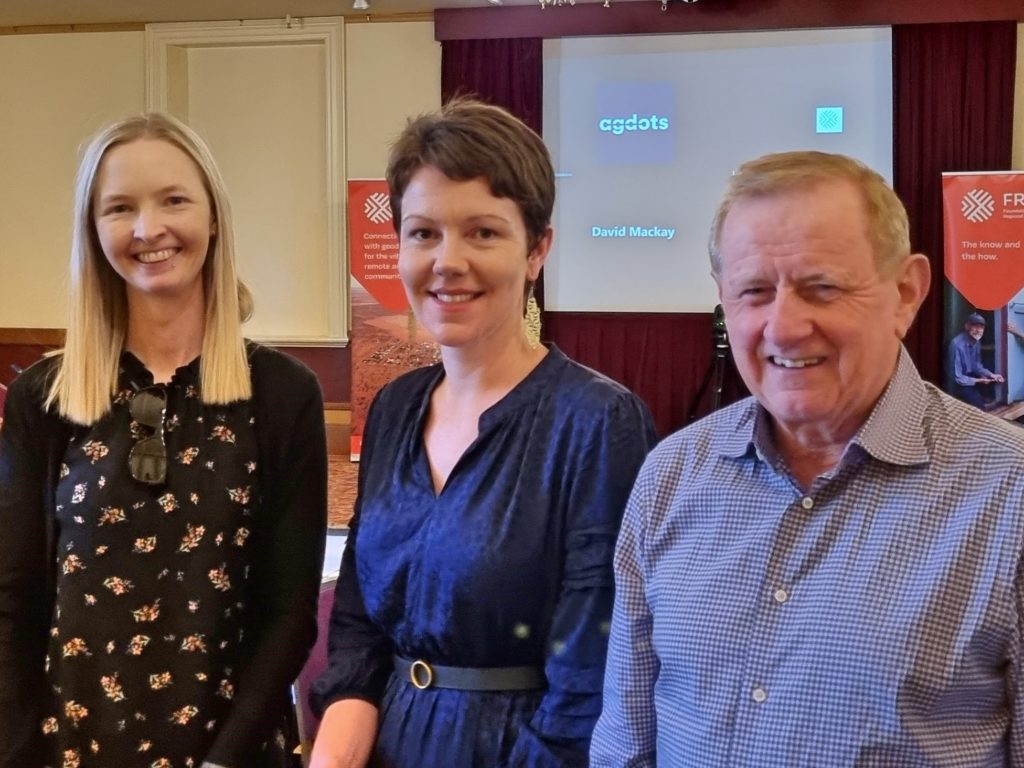
Mission Australia has worked in partnership with Mid Coast 4 Kids to deliver ‘The Common Approach’ training to build capability for a whole of community response to child youth wellbeing in the Mid Coast region.
The Mid Coast was dramatically impacted by the South Eastern Australia floods in 2022. The townships of Taree, Wingham and Gloucester were inundated or compromised with flood waters and structural damage cutting communities off for long periods. There was flood damage to farm lands, residential housing areas and outlying communities. This disaster compounded significant stress that has been experienced in the communities for an extended period due to the impact of prolonged drought, COVID-19 and bushfires.
As a result, early childhood centres and schools reported increased anxiety and trauma-related behaviours in children and young people, and the service system was not coping, with allied health and other support services reporting wait times of more than 12 months.
‘The Common Approach’ has equipped a range of members of the Mid Coast community with the skills to have quality conversations and build resilience to respond to the wellbeing needs of children, young people and their families, now and into the future. In total, 228 people including community service, health and education professionals, community volunteers and parents were trained to have evidence based, holistic conversations with children and young people about all aspects of their wellbeing.
Participants report increased confidence in being able to support children and young people to identify strategies to improve individual wellbeing. “Through this intervention we have equipped our community to share responsibility for promoting and supporting the health and wellbeing of children and young people in our community, via evidence informed practice,” says Program Manager Bree Katsamangos.
“Additionally, practitioners will benefit from the opportunity to engage in a bi-monthly Community of Practice to support ongoing development and practice.”
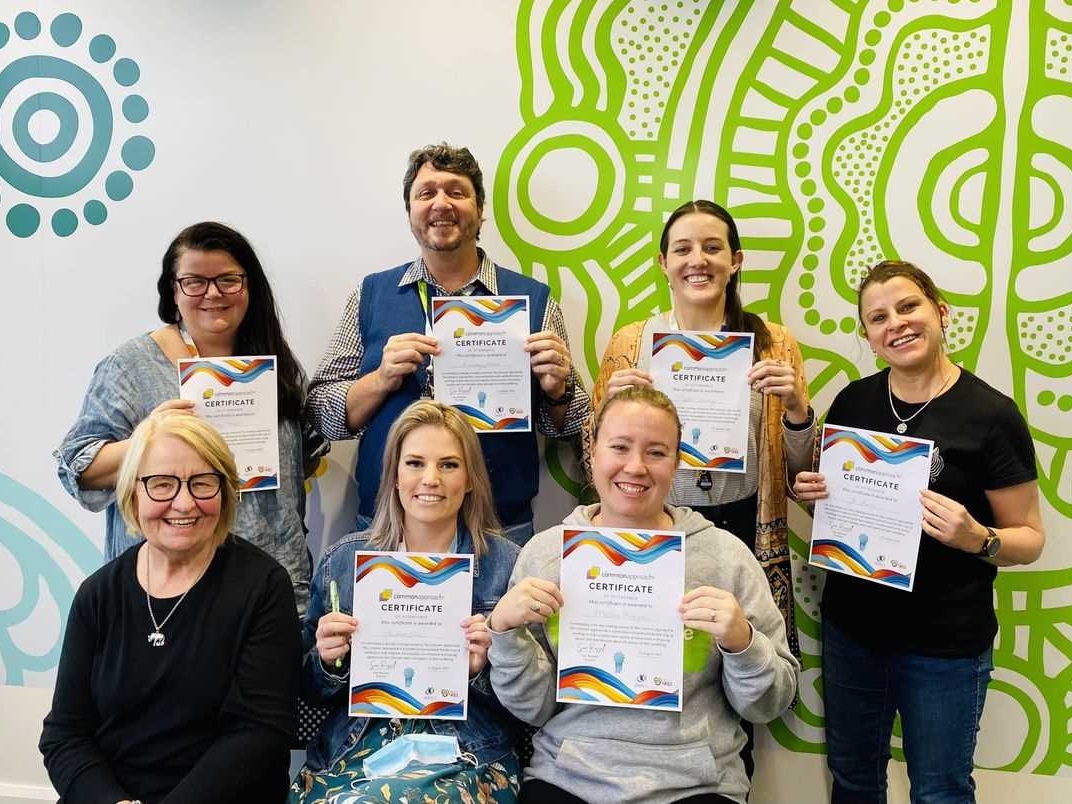
Ourschool connects students and alumni
Ourschool is a not-for-profit organisation that believes past students have a lot to offer current students when it comes to driving equity in education and positive, systemic social impact. In fact, Ourschool’s vision is that every Australian public secondary school has a thriving alumni community whose members are easily able to give back to their old schools. Since 2019, Ourschool has worked with school staff and alumni to inspire and support current students through meaningful engagements in school-based alumni programs.
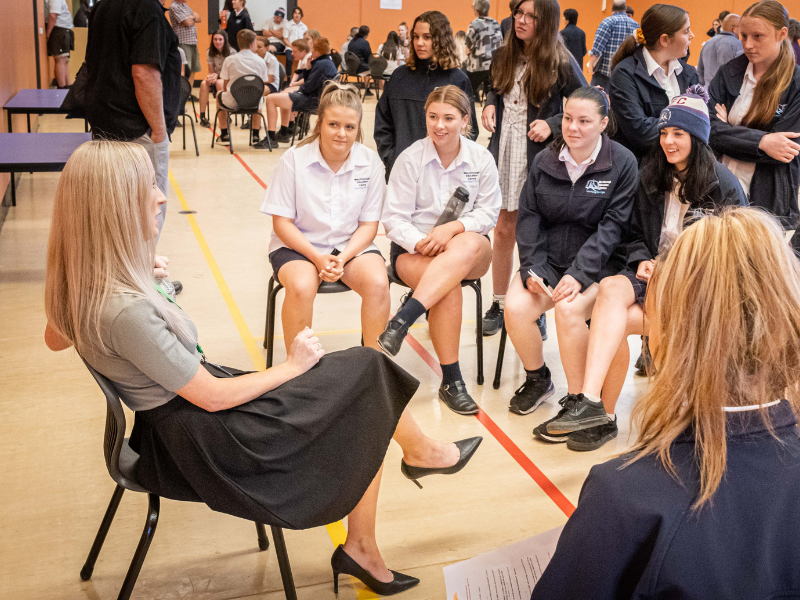
While principals generally see the value of alumni programs, limited funding in public school budgets makes it hard for school principals to invest resources into an alumni program’s establishment and growth. Chronic teacher and education support staff shortages at regional schools (thanks in large part to continued disruptions from COVID and teacher shortages) make it hard to plan alumni sessions and alumni engagement at schools.
But Ourschool is persisting and working hard to make it possible. They partner with FRRR, using a Not-for-Profit Fundraising Account to assist them to fundraise by offering tax deductibility for donations to help them deliver the program in more public secondary schools in rural and regional Victoria.
The funds are used to build program capacity and increase the number of regional schools receiving assistance from Ourschool. And it’s working, with the program operating in 14 regional schools, up from 10 in 2021. This involved employing more staff to deliver the services to the partner schools.
The reach is impressive — during FY22, 7,174 students were involved in 71 alumni career pathways or subject specific sessions, and 110 past students were involved in the sessions across the 14 schools in the Geelong and Ballarat regions alone.
As these alumni programs are “revolutionary” for public high schools, they require small steps, persistence, and a methodical approach to proving the worth of starting such a program. But even valued programs are faced with challenges.
One of Ourschool’s proposed solutions to this problem is the creation of a walkathon prototype school event to mobilise the fundraising capacity of a school’s community and its alumni to help fund and sustain each school’s alumni program. Ourschool is using some of the funds they’ve raised to develop an event resources and operations manual that will be packaged up for the partner schools to use and amend to run a high-quality, annual walkathon or other type of community-school event that raises funds to continue a school’s alumni program.
Check out this post to learn more about what Ourschool’s alumni activities look like.
Our thanks to United Care Glenelg for sharing this impactful story with us, made possible in part by a $5,000 Strengthening Rural Communities grant awarded in 2022, funded by the Ian Rollo Currie Estate Foundation.
With the cold weather well and truly settling in, the cost of living and energy costs skyrocket; many older residents are left to choose between eating or heating. For some, it can also be the loneliest and most isolating time of the year.
As a response, United Way Glenelg delivered much-needed Winter Care Packages to make residents feel valued as community members.
An essential part of ageing successfully is having enough energy for cooking, heating, cooling, cleaning, and leisure activities.
Nicole Carr, Executive Officer United Way Glenelg said agencies, when conducting home visits, often find residents rarely putting the heating on, choosing instead to sit in a cold room due to increasing costs, said Ms Carr.
Recent research said many older people will avoid using heating – risking their health and well-being to reduce costs.
“We are working very closely with local agencies to ensure we are identifying and reaching those most vulnerable and in need.”
“Being able to meet living costs helps prevent ill health or premature death, manage illness and chronic disease, sustain social relationships, and support positive mental health,” Ms Carr explained.
Delivery of the Care Packages helps in some small way to improve morale and alleviate some of the stresses associated with winter.
Assembled by the Standing Tall group at Heywood & District Secondary College, the students and their mentors, packed 200 boxes with an assortment of non-perishable food and personal care items, a food voucher for purchasing perishable items such as meat, fruit and vegetables, an activity, reading material, a special treat and a personal note from Merino Consolidated Primary School.
“We’re thrilled to include for the first time, a meal voucher. Valued at $20, the voucher enables the resident to go to one of five Hotels in the Glenelg Shire and share a meal with a family member or friend.”
“We approached All Saints Outreach with the proposal to sponsor the meal vouchers and they jumped at the opportunity to help!”
Another special item was the inclusion of homemade knitted blankets, hats and scarves with Julia Street Creative Space and generous local knitters jumping at the opportunity to contribute.
“We’ve been overwhelmed by the generosity. So much so we’ve started collecting for next year’s packages.”
The campaign for funding the Winter Care packages began early in March when people were encouraged to “turn off the heat,” creating a lived experience albeit for a short period and generating an understanding of the struggles facing many living in the Glenelg Shire.
Ms Carr said it takes a collaborative approach to support a community.
United Way Glenelg tipped in $10,000 from its Lewis Court Fund to match donations made by individuals.
“We also sought out grants from philanthropic organisations and were pleased to receive generous contributions from FRRR, The Ian Rollo Currie Estate Foundation, All Saints Outreach and Wannon Water.”
From anecdotal evidence, by the way of the messages of gratitude from the many letters, phone calls and cards received, we know the packages are greatly appreciated in supporting older people with basic needs, preventing them from disconnecting from the community and making them feel valued.
Sandra, an 84-year-old widow said the package was a lovely surprise:
“It was very much appreciated. All useful and thoughtful goodies. And the blanket is a huge plus. I am having an operation on my hand tomorrow so the Readers Digest books will be easy to hold. The vouchers will be used. Thanks to each member.”
And Joan from Casterton said, “it’s lovely to know we are still thought of as we get older.”
“This is our small part, but we are relying on the entire community to look out for one another. Look out for your neighbours, your relatives and friends, anyone that needs a helping hand,” Ms Carr explained.
“These packages will make Winter a little more bearable.”
Recipients were identified through United Way Glenelg Agency partners including Glenelg Shire Council Aged and Disability unit, Portland District Health Palliative Care and District Nursing units, Portland District Health Telecare, Dhauwurd Wurrung Elderly & Community Health Service Inc, Winda Mara, Dartmoor Bush Nursing Centre, Merino Bush Nursing Centre, Casterton Memorial Hospital and St Vincent de Pauls.
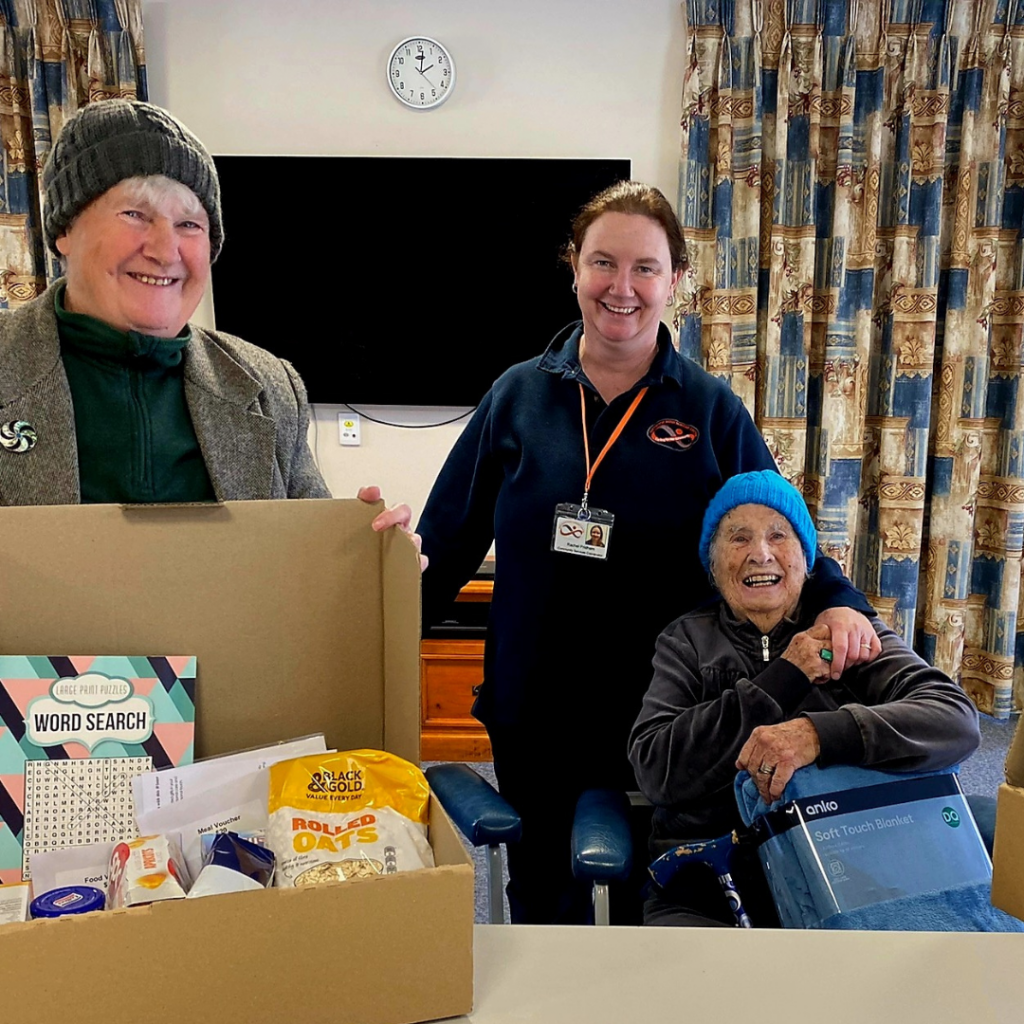 Dianne Carlile, Dartmoor Bush Nursing Community Services Coordinator Rachel Pridham and Val Colley.
Dianne Carlile, Dartmoor Bush Nursing Community Services Coordinator Rachel Pridham and Val Colley.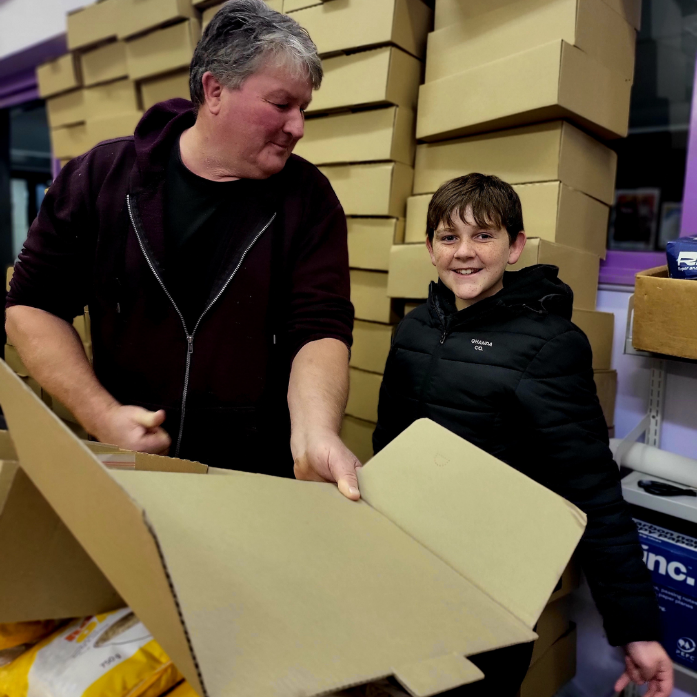 Standing Tall Mentor LJ Bell-Cooper (mentee) and Vin Gannon (mentor) assemble the Winter Care Packages.
Standing Tall Mentor LJ Bell-Cooper (mentee) and Vin Gannon (mentor) assemble the Winter Care Packages.
Augusta is a town in south-west WA, 40km from the nearest town of Margaret River, which is a larger service centre. Whilst traditionally a town with a reputation for having a high proportion of retirees, numerous young families have returned to Augusta where they grew up, or have taken a sea-change post-COVID.
When the only childcare centre closed in Augusta, families were faced with lengthy travel times to Margaret River, and this has had a flow-on impact on employment, limiting opportunities to access work, and for employers’ to fill staff vacancies.
A group of committed parents, local business owners and early childhood educators got together to set up an incorporated association to open a community-run, not-for-profit centre with 24 places to meet the urgent need for childcare. They successfully navigated the requirements and approvals of the Education Care Regulatory Unit and the Federal Government Childcare Subsidy program however, increased building costs compounded by development approval delays means the new centre is yet to open.
The best laid plans of mice and men…
Initially the project intended to purchase resources to outfit the new centre. Instead FRRR was able to work with the group to progress a variation to the original project, to help them adapt to their changing circumstances.
The group instead launched a vacation care service for children, kindy to 12-year-olds, filling a gap in the community’s childcare needs. They used a $10,000 Strengthening Rural Communities grant, funded by FRRR, to purchase educational resources that are of a higher quality and more durable than the donated and second-hand older toys and cheaper equipment that had previously been used.
These resources will last longer and extend the children’s imagination, and have added real value to the program and been much loved by the children. They will also be able to used by the new childcare centre when it eventually does open.
Kylie Lucas, Treasurer of the Augusta & Districts Childcare Centre, noted in their acquittal: “We are very grateful for the donors and team at FRRR for enabling our project to be delivered with better resources, and it has made a real difference to the kids, working families and community members in our little town. The committee appreciated FRRR’s flexible and supportive approach.”
Contribute to the Change was one of the project ideas developed at the 2021 Heywire Ideas Lab. The group of young people who developed the idea wanted to see mental health support become destigmatised and delivered in ways that were personalised to meet the needs of young people.
Riverland Youth Theatre (RYT), based in Renmark SA, adapted the Contribute to the Change idea to deliver a costume design project for young queer people in the Riverlands. Their project was called There I Am, and encouraged young queer people to image and create the best version of themselves through imaginative and colourful costumes.
RYT identified that within the region there were few safe spaces for LGBTQIA+ youth to explore their identity, nor groups aimed at supporting them. This resulted in a decline in mental health, and young people leaving the community because they lacked accepting and supportive adults and peers in their community. RYT developed There I Am to address this issue, aiming to create a safe, supportive environment where young struggling LGBTQIA+ youth could come and explore their authentic selves.
Participants spent five days working with a costume designer to create a costume that told their story and helped them imagine the person they wanted to be. The project built on the idea that self-expression through clothing can be an affirming and validating act for queer youth who are exploring their identity.
“I feel like my outfit kind of says ‘hey I’m here, I might not be able to talk, but I am still a person, and I can be present here, even if I don’t feel like it that much.”
Rowan, one of the youth participants, said that their costume helped them feel in control in a world where they have little control. “I kind of based it on a part of myself that I’ve suppressed over the years and bringing that into the light. With my costume it’s about being able to control whatever I want and it can all go perfectly.“
Projects such as There I Am have begun to establish Riverland Youth Theatre as a safe space for queer young people in the Riverlands. Youth have a place where they can seek support and be their authentic selves.
The FRRR ABC Heywire Youth Innovation Grants have continued to support the development of this safe space for LGBTQIA+ youth in Riverlands with another grant in 2022 for The Allies Project, which they once again adapted to their specific local context. Their project, Ally Merit Pins and Awards, empowers teens to decide what an ‘ally’ is and makes allies more visible.
The concept was developed by a young non-binary student who suffered from homophobic bullying and spoke of their exhaustion of not knowing which adults were safe or supportive. They proposed the merit badges as a way to encourage schools to be proactive in creating safe spaces for queer students and empower the queer community within their school. The project was awarded a $10,000 Heywire Grant and will be delivered in 2023, continuing to ensure that there a place within the Riverlands where LGBTQIA+ youth can find their tribe.
The Mooloolah Community Centre is the home and work hub of Mooloolah Valley Community Association Inc, located on the Sunshine Coast in Queensland. The Centre is run by a Management Committee of 10 volunteers from wide and varied backgrounds including finance, defence, nursing, social work, local government and administration, and there are a team of volunteers who support the Centre by doing tasks from garden maintenance to assisting in the Op Shop. Everyone at the Centre works for the benefit of the Mooloolah community, and the positive flow-on effects are felt throughout the Mooloolah Valley postcode area.
In February 2022, the flooding closed all roads into the town, cutting it off for four days and causing a loss of power across the area. The lack of a reliable power source during this disaster revealed critical vulnerabilities in the community for being able to charge phones and stay in touch with loved ones. Additionally there was no hot water and the Community Centre couldn’t open.
After receiving $25,000 in Round 2 of the Rebuilding Futures program, funded by the Suncorp Group, the Community Centre has now securely installed a solar battery pack ready for any future disasters or power outages. The installation of the solar batteries has completed a significant preparedness project by this group, who over the last year, have added emergency lighting, directional emergency lighting and evacuation alarms so the community can be prepared and therefore more resilient in times of extreme weather events.
The Community Centre says it is ready to support the needs of the community in times of distress, including having the Op Shop open to allow people to obtain emergency clothes if required, and enabling the Welfare Officer to operate and offer vouchers for food and fuel. The website has been updated with a new ‘Community Resilience Service’ that promotes an offering of a place of refuge during disaster, including the basics like a hot drink, charging phones, using the internet and much more.
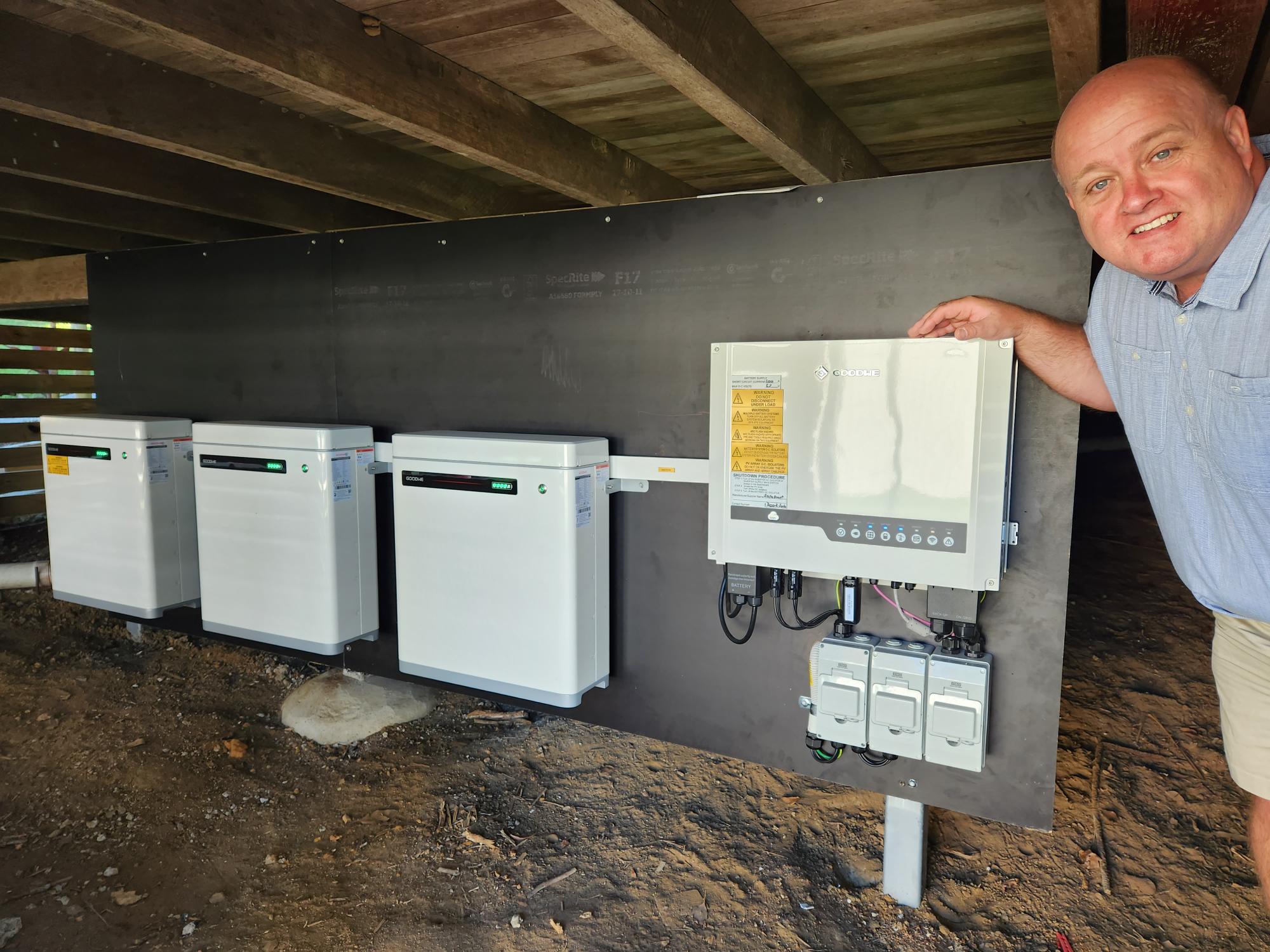
Mooloolah Valley Community Association Inc’s Events & Grants Officer, Jason Carroll
FRRR and Bega Valley Shire Council recently announced that a new initiative was being rolled out in Bega Valley, thanks to funding from the $1.3 million Australian Government Black Summer Bushfire Recovery Program.
Building on the foundations laid by the Investing in Not-for-Profit Capacity in Regional NSW (INFPC) program that FRRR has run in the region over the last two years, the new program is called Investing in Rural Community Futures (IRCF) Bega Valley – Resilience Connection and Place Project.
Recently, FRRR kicked off the IRCF program in the Bega Valley with a roadmapping workshop, which was attended by 33 local community members and leaders. The purpose of the session was to identify the gaps that exist within the local community, to discuss the needs of locals and to begin building a plan for how local not-for-profit organisations (NFPs) can work together to better fulfill those needs.
Carolyn Ardler, FRRR’s IRCF Program Manager for the South Coast, said the workshop was a great way to bring the community together and identify common areas of need.
“The workshop was really well-attended and everyone who participated had a lot of valuable insights and knowledge to contribute. It was a great opportunity for the community to come together to discuss the needs of the community and identify some tangible projects that can be worked on moving forward.
“We worked on six projects using the Designing For Wiser Action process facilitated by Campfire Coop. These are projects that the community sees as a priority and will support the Council in the implementation of the next steps.
“We also introduced Bree and Leah- the new community facilitators, who are based at the Bega Valley Shire Council – to the group. Representatives from the Australian Rural Leadership Foundation were also there, explaining the Regenerate Leadership Program, which is a key part of the program. It will offer free leadership training to 24 community leaders,” Ms Ardler said.
To find out more about the IRCF program or to get involved, visit ircf.frrr.org.au/bega-valley-community-roadmap/ or contact FRRR Carolyn Ardler, IRCF Program Coordinator – South Coast on 1800 170 020.
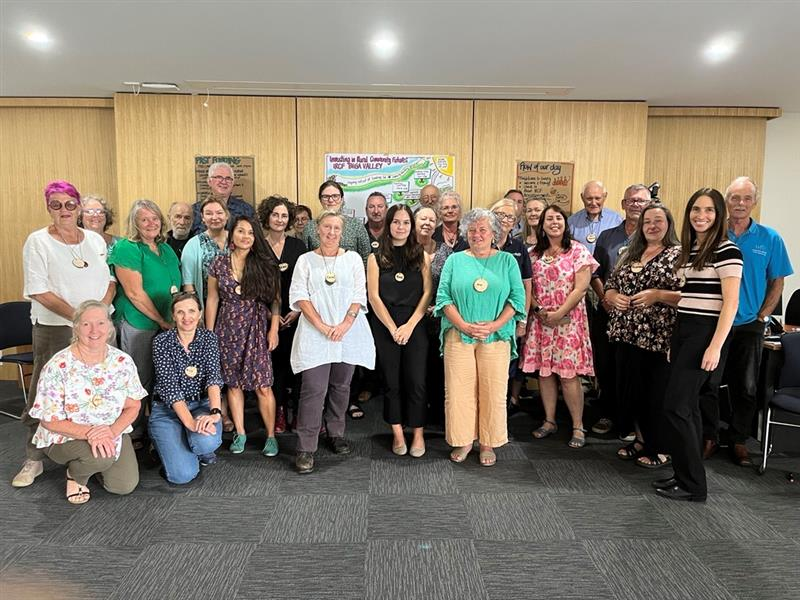
Regenerate Bega Valley and Regenerate Shoalhaven – two leadership development programs designed in response to the 2019-20 bushfires – are currently open for applications.
Leaders of local not-for-profit organisations in the Bega Valley and Shoalhaven region are invited to apply for locally-delivered leadership development programs, designed to build their capacity to help with ongoing bushfire recovery and response.
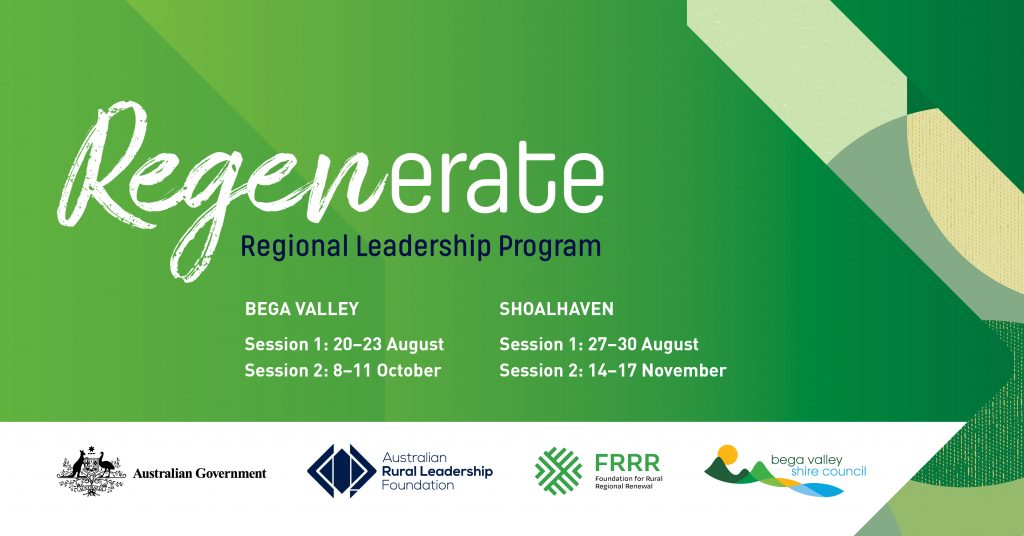
There are 24 scholarships offered in each location for local leaders who’ll get access to some of the best leadership thinking and practice available, plus practical tools and skills via experiential learning.
The Australian Government’s Black Summer Bushfire Recovery grants program is funding the programs, to be delivered by the Australian Rural Leadership Foundation (ARLF) in partnership with the Foundation for Rural & Regional Renewal (FRRR).
FRRR’s Acting CEO Sarah Matthee explains they’re part of FRRR’s Investing in Rural Community Futures program which aims to build confidence, ability, skills and longer-term sustainability of the region’s NFPs.
“We know local not-for-profits are often leaned on significantly, especially in the event of a natural disaster as was the case with the Black Summer bushfires,” she says.
“Pressure on programs, services and volunteers is leading to fatigue and a depletion of local resources. From our work over the last few years in both these communities, we’ve seen an overwhelming appetite for cross sector collaboration and planning within the community. The ARLF leadership programs will help boost their capacity and impact.”
ARLF Chief Executive Matt Linnegar says the Regenerate Shoalhaven and Bega Valley programs will help local leaders to collaborate, build networks and lead community initiatives.
“When future emergencies, or opportunities occur, this network will be invaluable. They won’t be just names and positions; they’ll know and trust each other and be able to work through the challenges in front of them, to build resilience.
“This leadership network will guide and empower communities to address bushfire recovery priorities aimed at rebuilding and growing their local economy.”
For Carina Severs, manager at Eden Community Access Centre and chair of the Eden Recovery and Resilience Alliance, resilience is about knowledge.
“I’d like people to know what’s available, to know the ‘capability and capacity’ of frontline emergency services, as well as the support services such as Red Cross, CWA have. Resilience is about learning skills and being able to look after yourself as best you can, but it is also about showing care for those around you – your neighbours, friends and others.”
Also welcoming the Regenerate programs, Kangaroo Valley community champion Nat Harker reflects: “No lives were lost, but our community has changed. Some people have since left, most are still carrying trauma but we are working closely together to build resilience for the future – to strive, survive and then thrive.”
Applications for the Regenerate Bega Valley and Regenerate Shoalhaven leadership programs are now open. Each program is open to volunteers or employees in the not-for-profit sector. There will be two four-day residential sessions starting in August. For more details and to apply, visit rural-leaders.org.au (regional programs). Applications close on 18 June.

